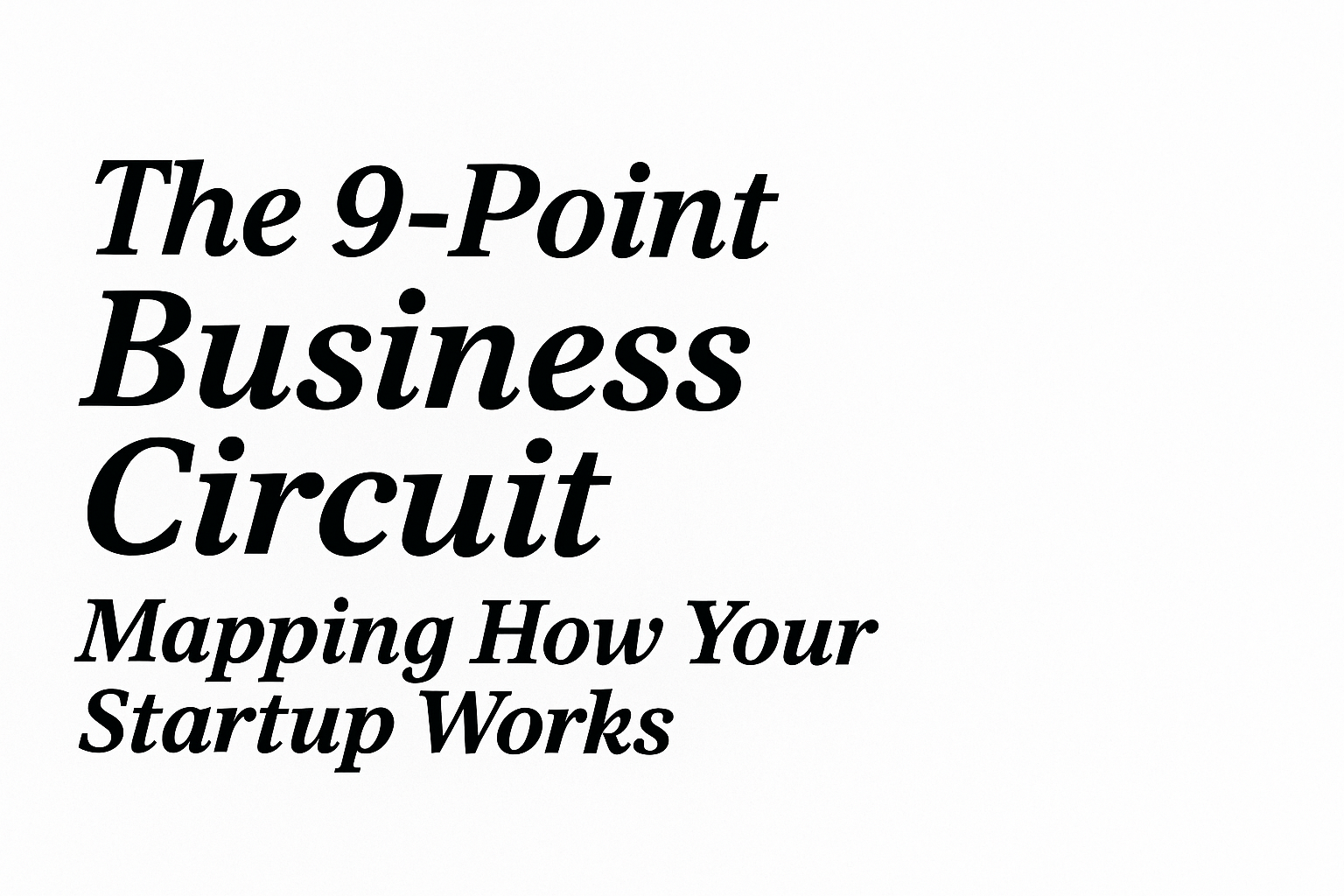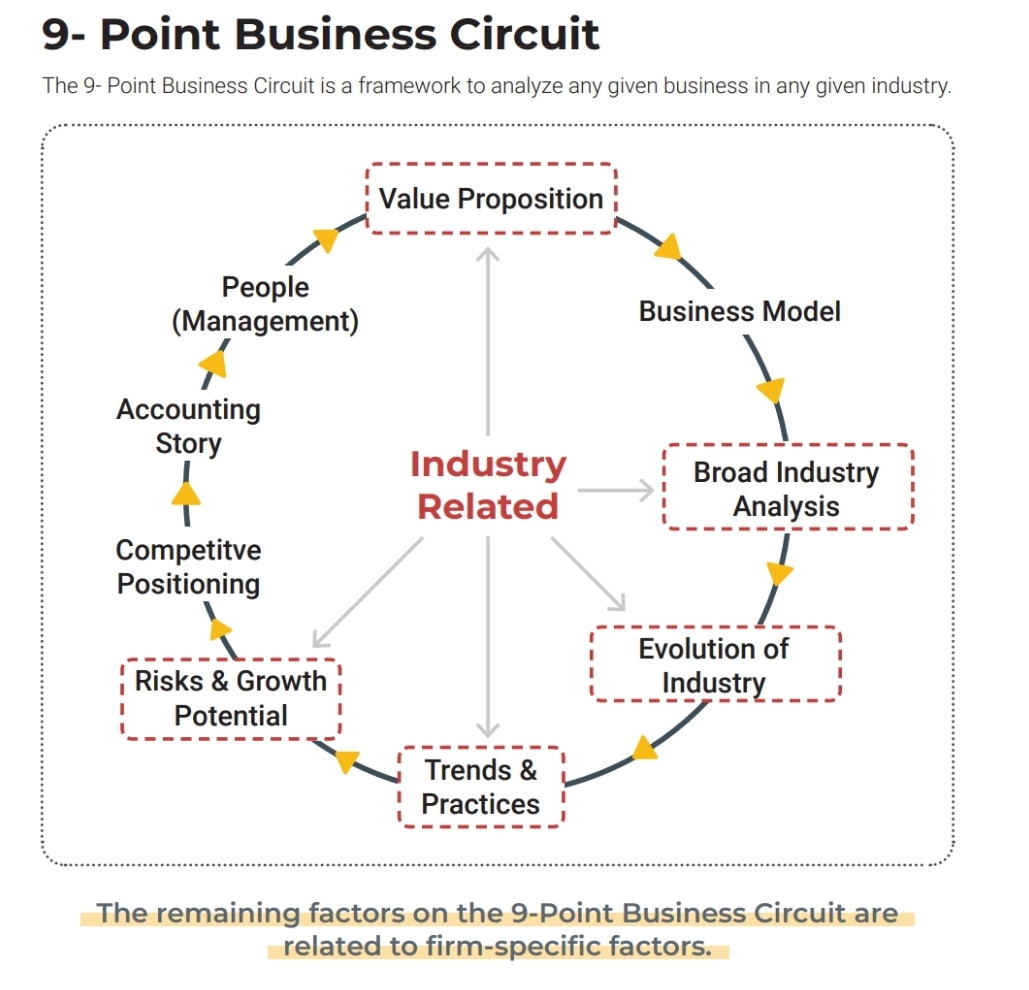Back
Tarun Suthar
CA Inter | CS Execut... • 4m
Day 3 - The 9-Point Business Circuit: Mapping How Your Startup Works ⏩️ 💥 Every startup begins with an idea - a spark that promises to solve a problem. But the journey from “idea” to “industry player” depends on how well you understand your own business engine. Most founders look at their startup as a product or a team, while in reality, it’s a system of interconnected parts. If even one part of that system breaks, growth stalls. To build something that scales, founders must learn to see their company as a 9-Point Business Circuit - a holistic map of how the business truly works. Let’s break down this circuit, one point at a time. 🤔 1️⃣ Value Proposition ⚙️ This is your “why.” Why do customers choose you over alternatives? It’s not about features - it’s about solving a specific pain in a better way. For example, Zerodha didn’t win because it was another stock broker; it won because it simplified investing and cut unnecessary costs for retail investors. Ask yourself: What’s the real reason customers pay for your product? 2️⃣ Business Model 💰 Once you know why people buy, the next question is how you make money. A good business model converts your value into predictable revenue. Notion gives away its product for free but monetizes through teams and enterprise plans. The key? Find a repeatable, recurring and scalable revenue mechanism that matches your core value. 3️⃣ Industry Analysis 🌐 Every business operates within an industry with its own rules. Founders must understand their Total Addressable Market (TAM), Served Available Market (SAM), and Serviceable Obtainable Market (SOM). Study competitors, customer behavior, cost structures, and entry barriers. ( Read Day 2 Post FYI ) 4️⃣ Evolution of Industry 🧬 Markets evolve faster than ever. What worked yesterday may fail tomorrow. Think about Ola - it began as a cab aggregator but evolved into mobility-as-a-service, adding auto, electric, and intercity segments. As industries mature, customer expectations shift, and so must your business circuit. 5️⃣ Trends & Practices 📉📈 Trends shape opportunities. Practices define competitiveness. Startups that sense shifts early move ahead. Nykaa, for instance, anticipated the beauty e-commerce boom and blended influencer marketing with personalized shopping experiences before it became mainstream. Keep scanning trends in technology, regulation, and customer psychology. 6️⃣ Risks & Growth Potential ⚠️ Every opportunity carries risk. But risk doesn’t always mean danger - sometimes it signals direction. For example, when Razorpay entered fintech, payment security was a big risk, but solving it made them indispensable to the ecosystem. List your major risks - regulatory, financial, operational - and link each to a growth opportunity. 7️⃣ People (Management) 👥 No circuit works without conductors. Your management team drives the flow of execution, alignment, and adaptability. Think of Zoho - its success comes from a culture of self-reliant teams and long-term leadership thinking. A great founder builds a system where decisions are distributed, not dictated. 8️⃣ Accounting Story 📊📈 Your financials tell a story. They reveal if your model is sustainable or fragile. Revenue growth without positive unit economics is like running a motor on fumes. Focus on key metrics - CAC, LTV, churn rate, gross margins. Healthy accounting signals that your business engine can scale sustainably. 9️⃣ Competitive Positioning 🗺 Finally, every business must define its position in the ecosystem. Do you compete on cost, convenience, community, or innovation? Razorpay again is a good example - rather than fighting for market share through discounts, it positioned itself as the “default infrastructure” for online payments. Your position is not what you claim - it’s what customers perceive when they compare you. 🔌 Connecting the Circuit ⚙️ These nine points don’t operate in Silos - they interconnect. 🔗 A strong value proposition powers your business model. 🧲 A clear industry map helps you manage risks. 📊 Your people and accounting story strengthen positioning. 👥 When all nine connect, your startup becomes an ecosystem, not a product. That’s when investors trust your numbers, customers stay loyal, and teams execute with purpose. Stay tuned for some amazing post articles ahead. 💥 🧠 Action for Founders 💭 Today, fill out your 9-Point Business Circuit Sheet

More like this
Recommendations from Medial
Thakur Ambuj Singh
Entrepreneur & Creat... • 11m
The 9 Point Business Circuit is a comprehensive framework for analyzing any business within its industry. It covers key aspects such as value proposition, business model, industry trends, competitive positioning and growth potential, helping entrepr
See More
Mesride Tech
Software hamara, bus... • 1y
Must have softwares for startups : 1. CRM : Manage your relationship with customers 2. Accounting : have a check on in & out financials 3. Invoice : to make invoices fast 4. GST billing : to manage GST 5. HR Management: to manage your human resource
See MoreParkhi Bansal
See the angle which ... • 1y
Hey everyone If anyone wants there tax,gst,audit, accounting and finance related services on the lower rate connect me for the same. I want to help new business commers in the industry to help with the compliances. Connect for the process and pric
See MoreDownload the medial app to read full posts, comements and news.











/entrackr/media/post_attachments/wp-content/uploads/2021/08/Accel-1.jpg)




















